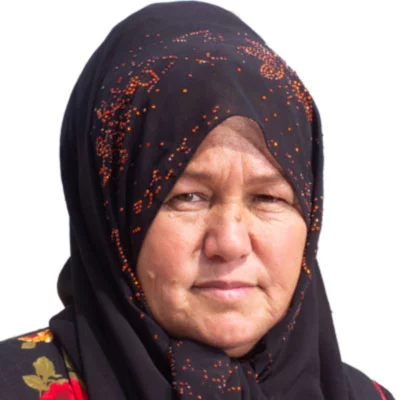We use audience measurement tools (such as Google Analytics 4 and Clarity) via Google Tag Manager to understand how the site is used and to improve it. The data is used for statistical purposes and is not used for targeted advertising.
Land poisoned by obsolete pesticides
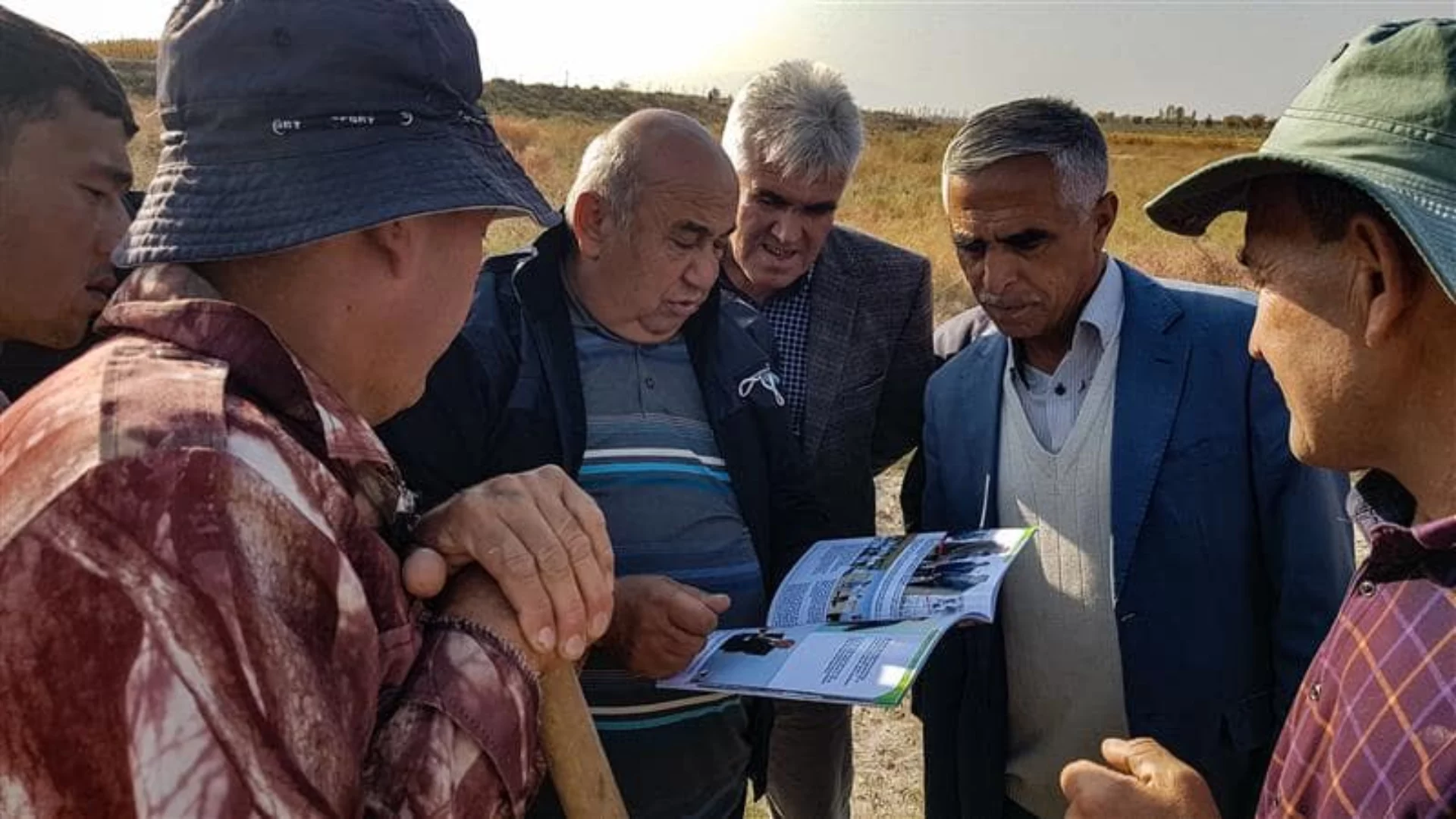
In Tajikistan, former pesticide stocks have seeped into the soil and waterways, endangering the health of Oykamar’s residents. FSD is taking action to decontaminate these lands and remove their toxic substances.
Old stocks of pesticides have leached into soils and rivers and threaten the health of Tajiks. FSD has made good progress in clearing the polluted land from the village of Oykamar, one of the most contaminated locations. An awareness campaign was also carried out among the inhabitants in order to minimize the impact on their health. FSD is now beginning to clean up other localities and, at the same time, is joining forces with the United Nations to develop technology to treat contaminated soils.
The first step was to relocate four families who literally lived on a former storage site, in a village where 2,000 tonnes of pesticides were buried. With this urgent step taken, the FSD was able to undertake the long work of excavating the land in another particularly contaminated locality: Oykamar. This Tajik village is indeed a former distribution center for pesticides, the best known of which is DDT, which has been used since the 1950s as an insecticide in agriculture. DDT was used extensively in the cotton industry, which was practiced extensively in the former Soviet states. However, its use was banned by many countries as early as the 1970s because of its harmfulness to human health and the environment.
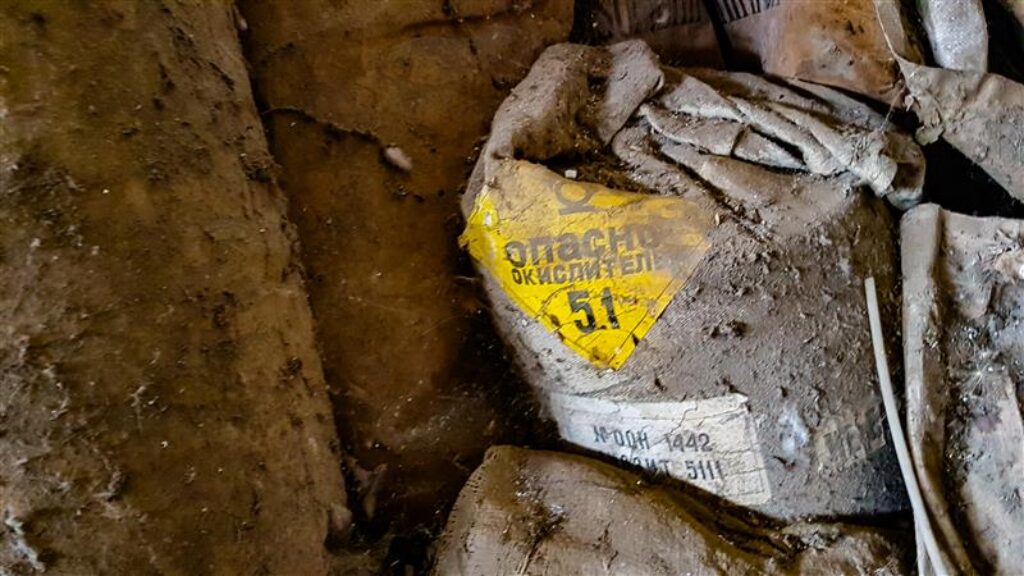
“These traces of pesticides are visible to the naked eye, says Salmanjoon, a resident of Oykamar. When it rains or snows, the ground turns yellow in the contaminated areas and the smell is unbearable.” In the absence of technology able to truly eliminate these toxic pesticides, the only solution for now is to excavate the contaminated soil and move it to a safe place, away from any human habitation. FSD staff thus transported over 500 tonnes of contaminated soil from Oykamar to Vakhsh, an isolated storage site that FSD has also helped rehabilitate. Truckloads of clean earth were then returned to the village of Oykamar to replace the excavated soil.
The FSD team will continue the remediation of Oykamar and repeat the same procedure in other contaminated locations, including Khujand and Kanibadam. This work is carried out in close collaboration with the Tajik Committee for Environmental Protection.
When it rains or snows, the soil turns yellow and the smell is unbearable.
The deleterious impact of persistent organic pesticides (POPs) on human health has been established by the World Health Organization: increased risk of cancer, reproductive disorders, impaired immune and hormonal systems, and increased birth defects in particular. At least 20,000 tonnes of these POPs are believed to remain throughout Tajikistan today. While waiting to be able to treat all the affected areas, FSD is conducting awareness-raising sessions with the communities concerned. Simple measures such as washing fruits and vegetables can reduce the amount of pesticides ingested. Certain crops that absorb less chemicals from the soil and ground water are also recommended. The Tajik Committee for the Protection of the Environment and the FSD jointly published a newspaper aimed at better informing the populations concerned.
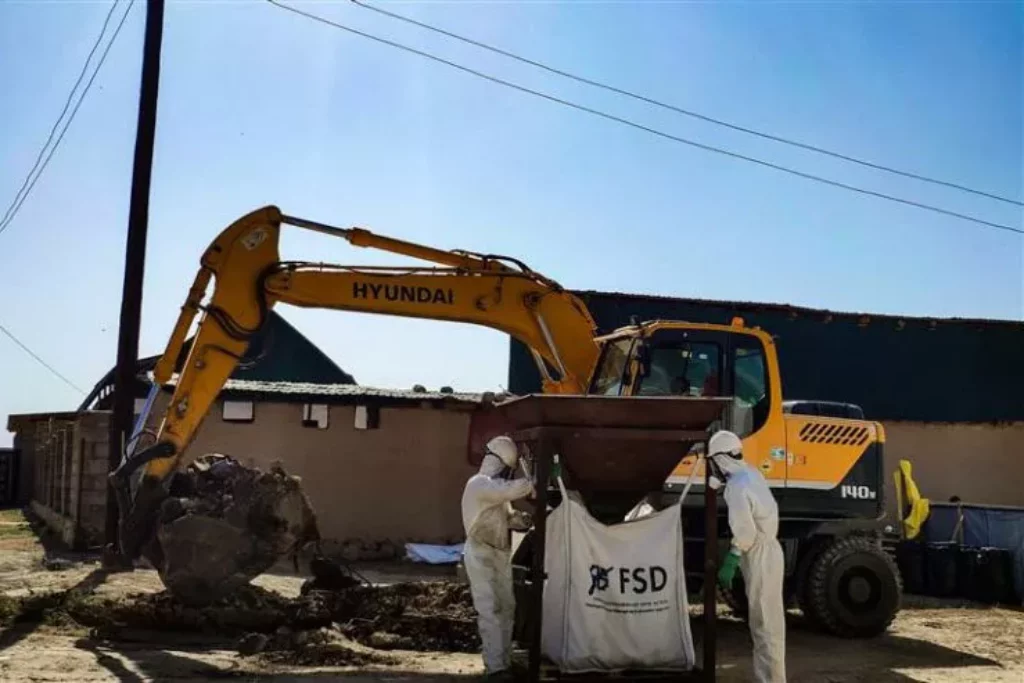
FSD places great hope in the prospect of thermal destruction technology that would solve the problem for good. The organization is collaborating with the United Nations Environment Program for this purpose. The aim is to set up a pilot project in Tajikistan and Kyrgyzstan to test a supercritical water oxidation reactor there. This would allow the contaminated soils to be treated at very high temperature and pressure, without the release of dioxins or other toxic effluents into the atmosphere.
More on our operations in Tajikistan
Our programme in Tajikistan
How does FSD help make borderlands safe for local communities? Which environmental initiatives strengthen food security and resilience to climate change? Find all the latest updates on our activities on our Tajikistan page.
View all


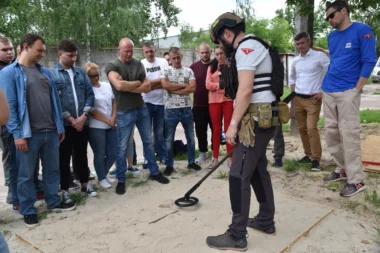

QR Codes to Save Lives
In Kharkiv province, Ukraine, residents live every day with the invisible yet very real presence of explosive remnants of war. FSD…
Prevention and risk education

FSD strengthens Ukraine’s mechanical demining capacity with new SECO-funded project
FSD has launched a new project funded by the Swiss State Secretariat for Economic Affairs (SECO) to help the State…
Machines, drones and technology Humanitarian demining Non catégorisé

How to become a deminer?
FSD’s deminers come from all walks of life: farmers, teachers, IT specialists and many others. Many have had their lives…
Humanitarian demining Iraq
